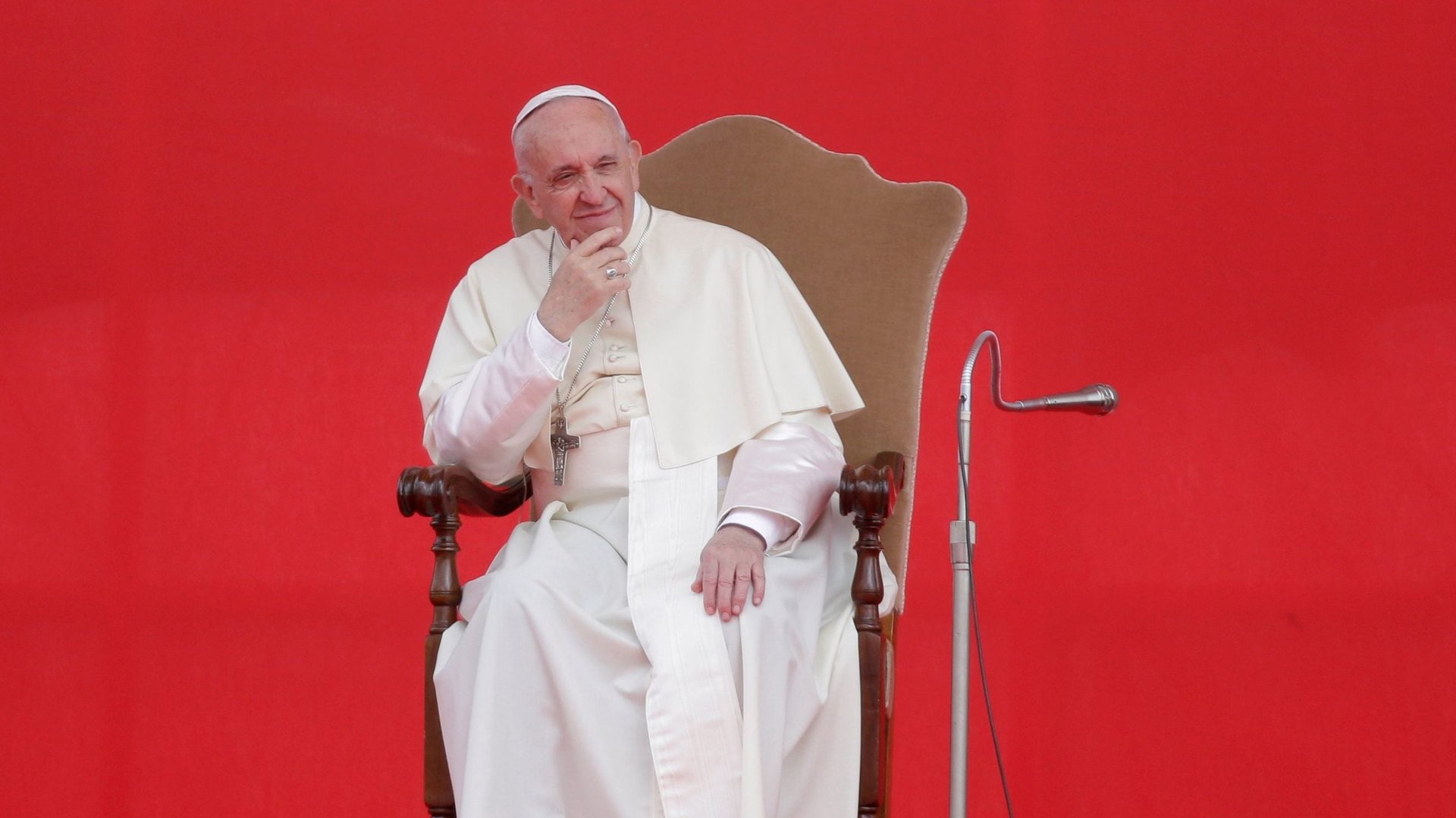The Pope isn’t simply a victim of a smear campaign
Calls for pope Francis to resign may well be motivated by political animosity. But that Francis could be capable of questionable behavior should only be a surprise to those who’ve been blinded by the pontiff’s own political spin.


Calls for pope Francis to resign may well be motivated by political animosity. But that Francis could be capable of questionable behavior should only be a surprise to those who’ve been blinded by the pontiff’s own political spin.
What’s really noteworthy about the recent allegations that pope Francis knowingly protected a sexual predator is that they’re so forceful, and come from relatively prominent leaders within the Catholic Church. The accusations were first put forward by the archbishop Carlo Maria Viganò, who served as the papal ambassador in the US until 2016; it’s unprecedented for a Vatican insider to call for the pope to resign. The saga shows not that pope Francis is a victimized saint, nor that he is secretly abhorrent—rather, it shows the power of his public image, and how PR, more than his policy decisions, has won him both fans and detractors.
As I wrote when Francis was met with euphoria on a visit to the US three years ago, his actions are not nearly as liberal as his popular perception. He’s condemned transgender rights and abortion, and steadfastly upheld the Church’s opposition to birth control. More than 50 years ago, pope Paul VI held a commission to debate birth control, and found that nine of 15 cardinals were opposed to the Church’s ban. Francis has never questioned this doctrine.
Meanwhile, though Viganò hasn’t provided evidence to support his claims that Francis helped cover up sexual abuse allegations, he’s hardly the first to have concerns about the pope’s record on investigating sexual abuse. When Francis (then known as Jorge Mario Bergoglio) held the role of archbishop of Buenos Aires in Argentina, he commissioned a report from church officials arguing that Julio César Grassi, a Catholic priest found guilty of molesting a pubescent boy, was in fact innocent.
Finally, the pope’s claim this week that, if parents think their children are gay, they should arrange for the kids to seek psychiatric help, keeps well within his long, confused history of condemning homosexuality.
And yet, Francis is apparently progressive enough to warrant a backlash from conservative factions of the Church. This is due primarily to the power of PR.
With the help of former Fox News correspondent Greg Burke, who’s currently director of the Holy See press office, Francis has emphasized the aspects of Christianity that appeal to contemporary progressive morals, such as eradicating poverty and tackling climate change. He’s also skilled at demonstrating his humble image in public: Visiting an optician rather than having a new pair of glasses delivered to him, opting to travel on a minibus instead of a chauffeured car, and washing the feet of prisoners. Even this week, amidst all the negative press, a conveniently timed BBC news story announced that the pope’s old car was donated to charity.
And, though the pope hasn’t taken any definitive action to shift the Church’s doctrine on homosexuality, he has alternated condemnations with statements that highlight his own forgiving nature, famously saying in 2013, “If someone is gay and he searches for the Lord and has good will, who am I to judge?”
These comments have boosted his liberal appeal and ignited fury from some within the Church; Viganò’s letter accuses Francis of allowing a “homosexual current” within the Vatican. Just as the pope’s remarks are substantive enough to infuriate conservatives, they can also have a meaningful impact on those who are gay and have long struggled with the Church’s attitude towards homosexuality. Of course, it would be far more significant if Francis challenged Catholic doctrine on homosexuality, but his more forgiving remarks are still a powerful counter to those who have been met with hostility from their Catholic relatives and Church leaders simply for being gay.
Ultimately, even when a carefully crafted public image doesn’t represent actual behavior, it can still have a remarkable effect when it emanates from someone as influential as the pope. After all, we have Christianity today not because millions rationally decided the Bible provided the true account of the way the world works, but because there was a concerted effort to spread its message. In 1622, pope Gregory XV embraced propaganda in creating “Propaganda Fide” (or the Congregation for the Propagation of the Faith) to help spread the Catholic message.
And yet, though propaganda can prove effective to some extent, it’s ultimately never as meaningful as action. Further, the charade may serve to hide behavior that would otherwise be condemned; even Francis’ most devoted disciples should be prepared to hear that the pope isn’t as perfect as he seems. As George Orwell wrote in 1949, “Saints should always be judged guilty until they are proved innocent.”